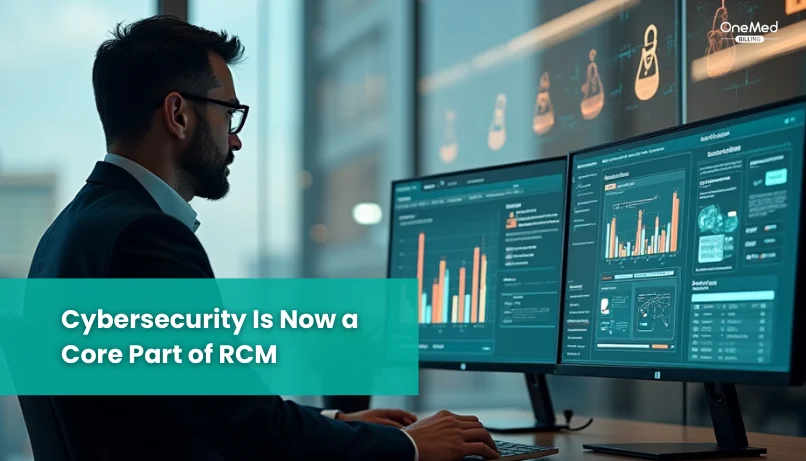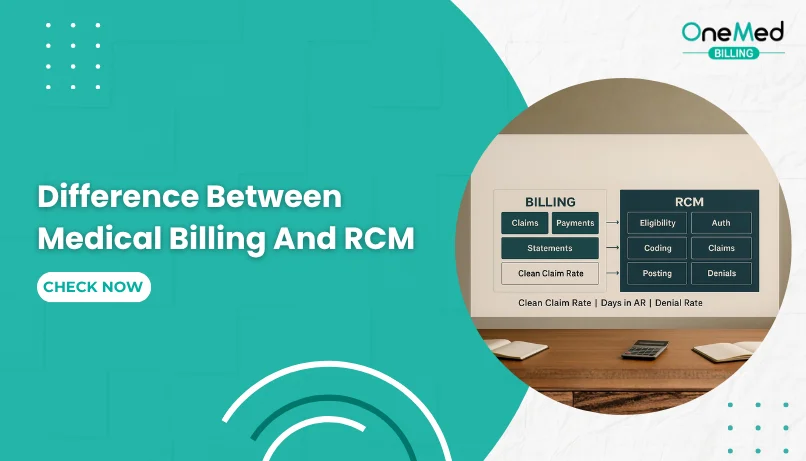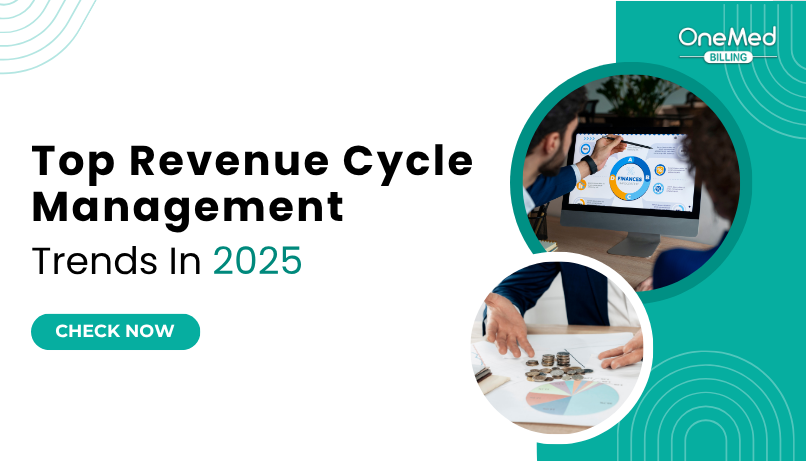Top RCM Trends Healthcare Providers Must Adapt in 2025
- Updated Date Oct 3, 2025
- Revenue Cycle Management
- Follow
If you're running a practice or managing billing in 2025, you’ve probably noticed things are changing fast. Claims are more complex, patients expect clearer billing, and payers are tightening the rules. On top of that, new tech like AI and automation is shaking up how we do the everyday work of revenue cycle management. That’s why it's important to know what’s coming. This Blog breaks down the key RCM trends shaping the industry right now in 2025, so you can stay ahead and make smarter decisions for your practice.
5 RCM Trends That Are Making a Real Impact in Healthcare Right Now
RCM isn’t what it used to be, the entire system is evolving fast. Below are five key trends that are actually making an impact right now.
1. AI and Automation Are Taking Over Billing Work

Billing used to be slow and tedious. Staff had to manually check insurance eligibility, enter codes, look for mistakes, and follow up on denials for weeks. But that’s changing quickly.
Today, AI tools and automation are helping with a lot of these tasks. Smart billing systems can:
- Check if a patient’s insurance is active before the visit.
- Suggest accurate diagnosis and procedure codes.
- Catch errors before claims are sent to insurance.
- Predict which claims might get denied so they can be fixed early.
This doesn’t mean you no longer need a billing team. It just means your staff can spend their time on more important tasks instead of repetitive data entry.
2. Denials Are Being Prevented Before They Happen
For a long time, claim denials were something you dealt with after the fact. A claim would get rejected, your team would scramble to fix it, resubmit it, and then wait again. That cycle wasted time and delayed payments.
Now, things are changing.
With smarter billing tools and better data tracking, many practices are catching issues before a claim ever goes out. These systems scan for missing modifiers, mismatched codes, and eligibility problems while the claim is still being built. Some tools even use AI to flag claims that look risky based on past denials.
This shift from reactive to proactive billing helps reduce delays, save staff time, and improve cash flow. Instead of spending days on rework, you’re submitting cleaner claims that are more likely to get paid the first time.
3. Cybersecurity Is Now a Core Part of RCM

Let’s face it. Medical billing and patient data go hand in hand, and both are valuable targets for cyberattacks. Revenue cycle teams are no longer just focused on getting claims paid. They now have to make sure that every step in the process is secure.
This includes everything from how patient data is stored in billing systems to how claims are transmitted to payers. One breach can expose thousands of records, damage your reputation, and lead to heavy fines.
Because of that, more RCM systems are being built with strong data encryption, role-based access controls, and automatic activity tracking. Compliance with HIPAA is just the starting point. Practices are also looking for vendors who regularly update security protocols and perform vulnerability testing.
4. Value-Based Payments Are Changing How Providers Get Paid
In the past, most healthcare providers were paid based on volume; the more patients they saw or procedures they performed, the more they earned. That model is starting to shift.
Today, more payers are moving toward value-based care, where payments are tied to outcomes. That means providers are getting paid not just for doing the work, but for doing it well. Things like patient satisfaction, reduced hospital readmissions, and long-term health improvements are now part of how reimbursement is measured.
For revenue cycle teams, this shift changes everything. Now, they have to track new quality metrics, understand bundled payment rules, and coordinate across departments to meet performance goals.
If your RCM process hasn’t been updated to handle value-based contracts, this is the time to get ahead. It requires tighter data tracking, better communication between clinical and billing teams, and tools that can support shared-risk models.
5. More Providers Are Outsourcing RCM to Save Time and Cut Down Stress

Managing revenue cycle tasks in-house can be a major drain on time, staff, and resources, especially for busy or growing practices. Between training billing staff, keeping up with payer rule changes, and chasing down claim denials, it’s no surprise that more providers are turning to outsourcing.
By partnering with a trusted medical billing company, practices can offload the heavy lifting, things like coding, claim submissions, AR follow-ups, and appeals. This not only saves money on staffing and software but also speeds up payments and reduces costly mistakes.
Outsourcing is no longer just a backup option. For many providers, it’s become the smartest way to stay efficient, compliant, and financially healthy, without burning out their internal team.
Conclusion
The RCM industry has changed drastically in recent years. If you're still doing things manually, it's time to rethink your approach. Whether it’s adopting automation, shifting to value-based care, or outsourcing to experienced billing partners, the goal is the same: get paid faster with fewer headaches. These trends aren’t optional anymore; they’re the new standard. The sooner you adapt, the stronger your revenue cycle will be.
Frequently Asked Questions
Find quick answers to common questions about this topic, explained simply and clearly.
What are the current trends in revenue cycle management?
Top revenue cycle management (RCM) trends in 2025 include the use of AI to automate billing tasks, preventing denials before they happen, stronger focus on cybersecurity, adapting to value-based payment models, and outsourcing RCM to reduce workload an
What is the future of revenue cycle management?
The future of RCM includes more automation, real-time data sharing, AI-driven claim processing, and a shift toward value-based care. These changes help reduce denials and improve cash flow.
Why are more providers outsourcing RCM services?
Outsourcing helps clinics save time, reduce costs, and access expert billing teams who can handle insurance claims, denials, and payments more efficiently.
Why is automation important in RCM today?
Automation helps reduce billing errors, speeds up claim processing, and lowers administrative costs by replacing manual tasks with smart software tools.





